Q & A with Summer Festival Speaker John Vorhaus and San Diego Writers Festival
SDWF: You’ve written several books for writers. Tell us about one of them, such as The Comic Toolbox.
JV: The Comic Toolbox was a gift from the universe. It’s the first book I wrote and by far my most successful. Twenty-five years on, it still resonates with – and profoundly helps – anyone who’s trying to be funny for the first time. Thanks to it, I have enjoyed a mind-boggling career of traveling the world to teach and train writers. “The Pink Book” (as some call it) is the anchor to my legacy, and I’m proud to call it so.
SDWF: What inspired you to write Creativity Rules: A Writer’s Workbook? Is it a companion to The Comic Toolbox?
JV: When I finished writing Creativity Rules! I thought that I had written a much better book than The Comic Toolbox. I was building on my experience. I knew more, understood my process much better, and could really break writing down to its essence and deliver the goods on, you know, how to write. And the book totally does that. But it costs the reader something in terms of time, insight, and effort. So while it’s richer in content than The Comic Toolbox, it also requires more work – and thus never quite sold as well. Not that that matters. It’s still quite rewarding for those who get into it, and it still stands up over time.
SDWF: Which writers have influenced you most?
JV: I take every opportunity to sing the praises of the great Tom Robbins, whose novels, especially Even Cowgirls Get the Blues, opened my eyes to what can be done when a writer sets out to do strange and wonderful things to the page. There’s whimsy in his work, plus smarts, deep self-awareness, and just enough research to make things interesting. Reading Tom Robbins helped me learn to let myself go. In the same vein, it was down to Douglas Adams’s Hitchhiker’s Guide to the Galaxy to say, “Here! Here is how you’re funny on the page.”
SDWF: If you could give a piece of advice to your younger self, what would it be?
JV: For too many of my early professional years I didn’t push myself as hard as I would have liked. It took me a while, and cost me plenty of angst, to really develop a practice of writing that could propel me into the future. I guess I got there – I mean, I know I got there – but in the early years, for every one minute of work I did, I would spend four minutes fretting. That’s a lot of time wasted to doubt. I don’t know how you tell a doubter, “Don’t doubt.” I just wish I had been around back then to tell me to, you know, work more and fret less.
SDWF: Which of your life experiences have shaped you most as a writer?
JV: In 2016 I lost my writing mojo for a while. It happens. At that time, by coincidence or providence, I also lost the use of one hand for a while – couldn’t type. So I decided to take up art – one-handed and wrong-handed – and see what I could make of that. It was transformational. Looking at creativity through the lens of art has broadened and deepened my understanding of how I work as a writer. I’m currently manifesting my art through The Hundred Head Project, in which I’m doing 100 self-portraits in 100 days as a fundraiser for Doctors Without Borders – because, you know, those doctors need all the borders they can get.
SDWF: What was the first piece of writing you shared with someone else?
JV: In high school I wrote a play called Ducks. I gave it to my drama teacher and she described it as, “Not a play in any sense of the word that she understood.” She was not wrong. It was more like theater of the absurd, heavily influenced by Albee, Ionesco, and the Firesign Theater (if you don’t know about the Firesign Theater, man, check them out!) But later it won an award, so that just goes to show that, per William Goldman, “Nobody knows anything.” The lesson that I dimly took away from the experience was keep giving them you until you is what they want. Why not? At the end of the day (this will be very clumsily expressed), you is all you have.
SDWF: Is there a line from one of your books you’d be willing to share? (opening sentence(s) or something that gives the flavor of the piece?)
JV: This is from my novel, The California Roll, which tells the tale of world-class con artist Radar Hoverlander. This is what he has to say for himself:
“The first person I ever scammed was my grandmother, who had Alzheimer’s disease and could never remember from one minute to the next whether she’d just given me ice cream or not. I’d polish off a bowl, drop it in the sink, walk out, walk back in, ask for another, and get it. Boom. They say you can get sick of ice cream if you eat too much. I found that was not the case.
“They also say you can’t cheat an honest man, but I say you can. The honest ones never see it coming.”
SDWF: Where can we find your blog/website or any other online links (Facebook, Twitter, Instagram)?
JV: You can find my novels, my writing and comedy-writing books, my books on poker and much more on Amazon at www.amazon.author/jv. If you’d like lovely first editions or other rare goodies (perhaps a digital copy of A Million Random Words), email me at john.vorhaus@gmail.com or visit www.johnvorhaus.com. I’m on Facebook as, you know, John Vorhaus, and you can find The Hundred Head Project at https://www.facebook.com/donate/220957449237014/271954984137260/
SDWF: Thank you, John!




